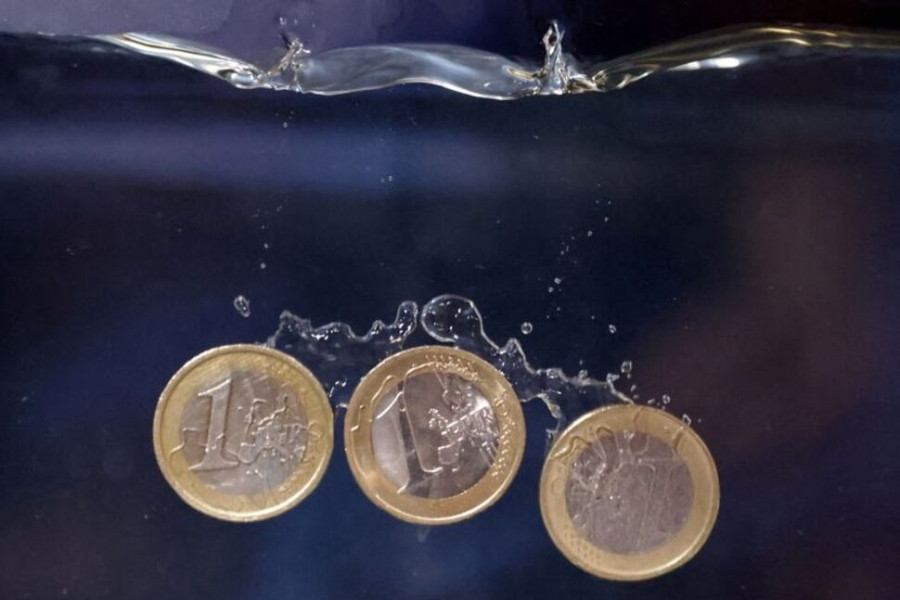The euro's fall below $1 for the first time in 20 years has sent the currency into its worst period of decline in history.

The prolonged energy crisis will cause the euro to depreciate further. Photo: Reuters
According to Reuters, the 11.8% decline recorded on July 13 was almost equal to the decline in 2015, when the European Central Bank (ECB) was forced to launch large stimulus packages. Analysts said that next week, the ECB will raise interest rates for the first time in 11 years to deal with inflation rising at a record rate of 8.6%.
Olivier Konzeoue, head of the currency group at asset management company UBP, assessed that the energy crisis has had a major impact on the euro and the European economy.
The euro fell sharply after the Nord Stream 1 pipeline was suspended for 10 days for repairs. However, if Moscow prolongs the move, Germany will be forced to use alternative gas supplies.
“If the pipeline closes for 10 days and doesn’t reopen, forcing us to ration more gas, we could see the weakest euro,” explained Christian Keller, head of economics research at Barclays.
Rising energy costs have already taken a toll on European countries, with Germany posting its first trade deficit since 1991 and investor sentiment falling below the levels seen during the COVID-19 outbreak in 2020.
An analysis by BNP Paribas of the historical performance of currencies when energy prices rise shows that the euro has been more affected than other currencies by gas price shocks, with an average decline of 4.5%.
Bets that the euro will continue to fall below parity have increased in recent days as Europe’s energy crisis worsens. Strategists at Nomura International predict that the euro could fall to $0.95 by the end of August. However, in a scenario where gas storage fails to replenish over the coming winter, the euro could fall to $0.90.
Similarly, analysts at Citi, an international bank, predict that Russia’s gas supply cut will push gas prices higher than current levels of around 170 euros per megawatt hour. If gas prices hit 200 euros and 250 euros, the euro would fall to $0.98 and $0.95, respectively.
The weakening euro has exacerbated the inflation problem. However, the ECB cannot risk tightening policy because it could push economic growth in the opposite direction.
In theory, the ECB could intervene by selling US dollars to prop up the currency, as it did in 2000, when the euro fell to around $0.83 per euro.
However, the bank signaled it may not act at this point, possibly because the euro's "real" exchange rate against the currencies of its trading partners and adjusted for inflation is still much higher than it was in 2002.
According to Tin Tuc Newspaper